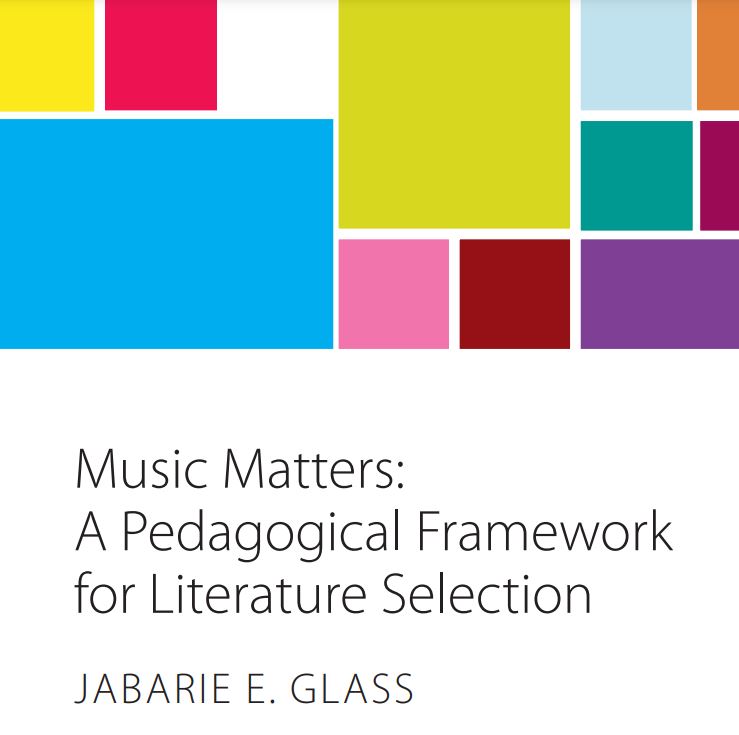
The February issue of Choral Journal is online and features an article titled “Music Matters: A Pedagogical Framework for Literature Selection” by Jabarie E. Glass. You can read it in its entirety online at acda.org/choraljournal. Following is a portion from the introduction.
___________________
A perpetual conversation among choral conductors has existed concerning the selection of literature. Choral professionals have written about this topic from varying viewpoints, including examinations of literature quality; literature selection practices based on historical, aesthetic, and pedagogical evaluation; literature appropriateness and accessibility; and issues related to diversity and inclusion.
Discussion has been robust because we understand the numerous influences literature selection has on the success of choral organizations—among these are singer engagement, member recruitment and retention, rehearsal and performance quality, personal musical development, and the musical tastes of both ensemble members and the communities in which choral organizations function.
Added to this list is the profound impact that repertoire choices have on choral singers’ musical growth. Through literature study, singers gain an understanding of musical concepts, establish and continue to develop their musicianship skills and vocal abilities, and engage in historical and cultural discourse.
Literature choices should facilitate the acquisition and development of specific musical knowledge and skills. The music we study and perform with our ensembles should be chosen with the pedagogical intent to introduce, develop, and reinforce the musical concepts and skill sets we deem essential for an adept choral musician.
Through literature study, singers develop skills related to part independence, phrasing, articulation, rhythmic precision, diction, intonation, listening, literacy, improvisation, tone development, and genre- and style-specific musical elements. Furthermore, singers develop an understanding of compositional construction (e.g., style and form, notational devices, the fusion of text and sound, and harmony constructs) through engaging with specific literature.
Also, the literature we choose for studying and performing creates opportunities for singers to become conversant with the complex connections between music and the cultural and societal contexts in which it was created; the historical and social influences on musical development; and how music has shaped and continues to impact our views of self, others, and the society in which we live. Engaging with literature from this perspective—in tandem with intentional performative skill development—makes content relevant to singers, broadens their world perspective, and deepens their appreciation for the diverse styles and genres they encounter.
View this full article (and more!) in the February 2021 issue of Choral Journal, available online at acda.org


Leave a Reply
You must be logged in to post a comment.